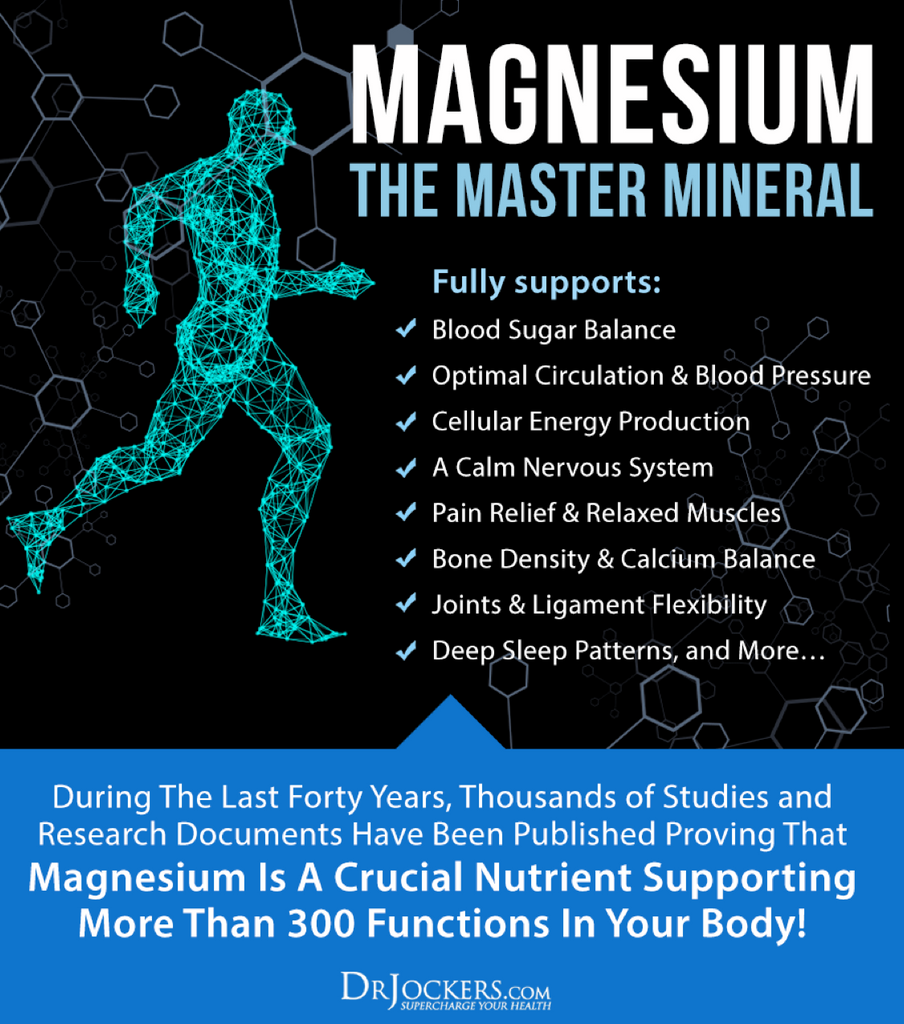
Magnesium supplementation can also support bowel motility and smooth bowel movements. You may want to try magnesium and oxygen-based colon cleansers. It improves bowel motility, prevents and relieves constipation, improves your microbiome balance, and removes toxins from your colon. I recommend CalMag Support.- Dr. Jockers
Let's discuss the key benefits of CalMag Support:

Why do people take CalMag Support?

Tastes great, easily tolerated. Trying to get my 83 yo mom to take it because she can’t swallow large calcium pills and has high bp and doesn’t consume her vitamins and nutrients.- Anna
Read our customer reviews and you'll see why our clients agree these are...
Supplements You Can
TRUST
CalMag Support

CalMag Support is a delicious, pear-flavored powdered supplement that provides high-quality, patented Albion® minerals in a state-of-the-art calcium/magnesium formulation. This supplement is easy to take for all ages, and the special forms of the minerals promote optimal absorption and utilization while being gentle on the gastrointestinal tract.

Calcium and magnesium are critical minerals involved in a plethora of biochemical and structural functions within the body. Insufficient intake of these minerals, due to the modern Western diet, is not unusual.
Adding to this, functional medicine practitioners find that individuals, including children, who consume restricted or specialized diets due to food intolerance or health challenges may be at greater risk for deficiency.
 What is Magnesium?
What is Magnesium?
Magnesium, the fourth most abundant mineral in the body, participates in over 300 enzymatic reactions in nearly all tissues. Deficiency is common. The average American diet is thought to provide about 40% of the daily magnesium needed, and reports from the World Health Organization have suggested that three-quarters of American diets fall short of this amount (1).
Deficiency can result from poor dietary intake, poor absorption, and excessive losses through urine, stool, perspiration, or lactation. Because magnesium is predominantly an intracellular cation, serum magnesium levels remain a poor predictor of tissue magnesium content and availability (1).

How is Magnesium used?
Particular drugs, certain herbs, poor kidney function, excessive alcohol intake, and drinking mostly “soft” water can contribute to magnesium depletion (1, 2). It is also important to note that physical and emotional stress can increase the need for magnesium and that hypomagnesemia and stress potentiate each other’s negative effects (3)
Furthermore, the adrenergic effects of psychological stress cause the movement of magnesium from intracellular to extracellular space, which increases urinary excretion and depletion of body stores (4).
Magnesium participates in the development and maintenance of bones and teeth; the metabolism of carbohydrates, blood glucose, fats, and proteins; the formation of cells and tissues; the modulation of cytokines; and the maintenance of muscle function (1, 5, 6)
In addition, magnesium is often used to support normal, healthy bowel movements. Of particular interest are the associations between levels of magnesium and neurological health, behavior, and brain function.

How does Magnesium affect neurological health?
Magnesium is an integral part of nervous system function—from biosynthesis of neurotransmitters to neurotransmission. Magnesium affects the permeability of excitable membranes and thereby acts as a “gatekeeper” to excitatory neurotransmitters (e.g., glutamate) (1).
According to researchers, the most common clinical manifestations of magnesium deficiency are produced by neural and neuromuscular hyperexcitability (2, 5). Animal and human studies suggest that magnesium supports relaxation, successful sleep, comfort with surroundings and situations, attentiveness, and a healthy mood (1, 7, 8).
Low intracellular magnesium is associated with increased defensive behaviors in animals (9) As an example, mice with low magnesium erythrocyte levels displayed restless and aggressive behaviors when under stress (9, 10)
Several animal studies show the positive impact of magnesium administration on stress-related behaviors (9). Low levels of magnesium have been observed in children who have difficulty focusing and magnesium supplementation has been observed to influence attention behavior positively (5, 8)

Magnesium quality and absorbability
Magnesium lysinate glycinate comprises magnesium bound to two amino acids to create a chelate that is more readily absorbed through the mucosa than other mineral forms. Since the body can efficiently absorb dipeptides (two amino acids linked together), Albion’s TRAACS® magnesium lysinate glycinate is an excellent delivery system for magnesium.
Di-magnesium malate consists of magnesium complexed in a 2:1 ratio of magnesium to malic acid. As a naturally occurring organic compound, malic acid is found in apples, watermelon, plums, lychees, and cherries in high concentration. It is more soluble than citric acid, and it forms mineral complexes (11).
Magnesium and malate play critical roles in the Krebs and glyoxylate energy producing cycles (16). Malic acid also appears to exert a protective effect by binding aluminum.

What is Calcium?
During childhood and adolescence, the body uses calcium to build strong bones. Calcium is required for vascular contraction and vasodilation, intracellular signaling and hormonal secretion. It also plays an important part in making sure that muscles and nerves work properly. Children and adults that adhere to a dairy free diet are often at greater risk of an insufficient intake of calcium.
CalMag Support provides 600 mg of elemental calcium as DimaCal in every scoop. Many calcium forms have low elemental calcium content when compared to DimaCal, which has 29% elemental calcium and 64% malic acid.
Additional factors such as bioavailability and gastric tolerance should be evaluated when comparing DimaCal to calcium carbonate. Unlike calcium carbonate and other alkali forms of calcium, DimaCal does not cause the formation of gas when subjected to stomach acid.
With malic acid acting as a natural buffering agent, DimaCal does not give rise to the acid rebound that can result from the use of other forms of calcium.
What is the recommended dosage?
Normal Dosage: 1 scoop- 1x daily (away from food)
Advanced Dosage: 1 scoop-2x daily (away from food)
Consult a healthcare practitioner prior to use. Individuals taking medication should discuss potential interactions with their healthcare practitioner. Do not use if the tamper seal is damaged.
STORAGE: Keep closed in a cool, dry place out of reach of children.
FAQs:
What allergens does this product contain?
This product does not contain wheat, gluten, yeast, soy, animal or dairy products, fish, shellfish, peanuts, tree nuts, eggs, ingredients derived from genetically modified organisms, artificial colors, artificial sweeteners, or artificial preservatives.
How should I begin taking this product?
When introducing a new supplement, we recommend beginning with 1 at a time and/or the lowest dose for 2-3 days. As tolerated, increase the dose until you have reached the recommended normal or advanced guidelines. Reduce to a tolerable dosage if adverse effects occur.

Select Your Options & Add to Cart
† These statements have not been evaluated by the Food and Drug Administration.
This product is not intended to diagnose, treat, cure or prevent any disease.




